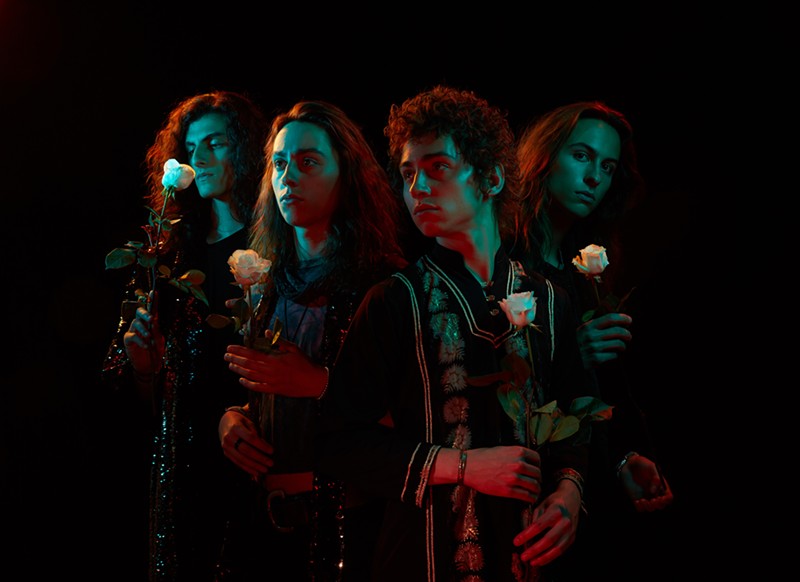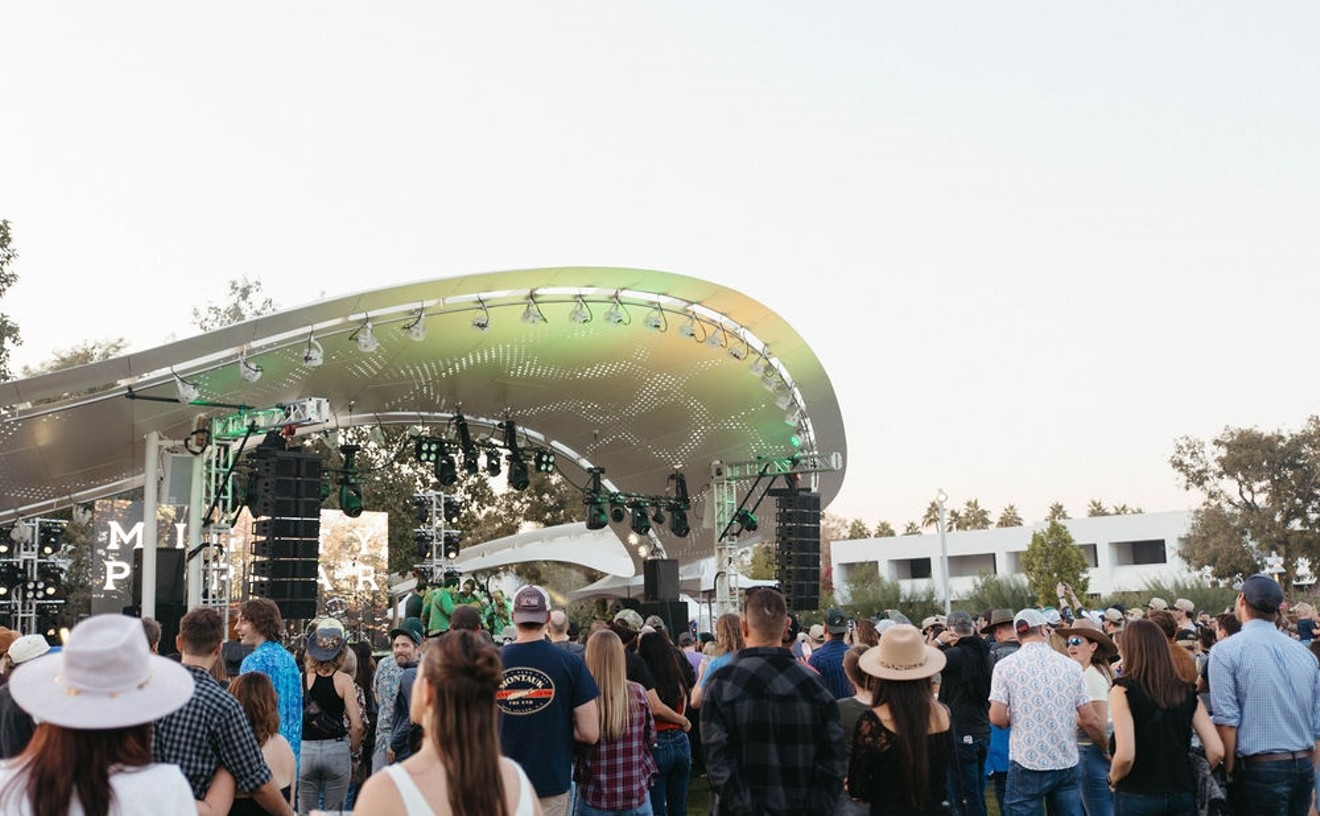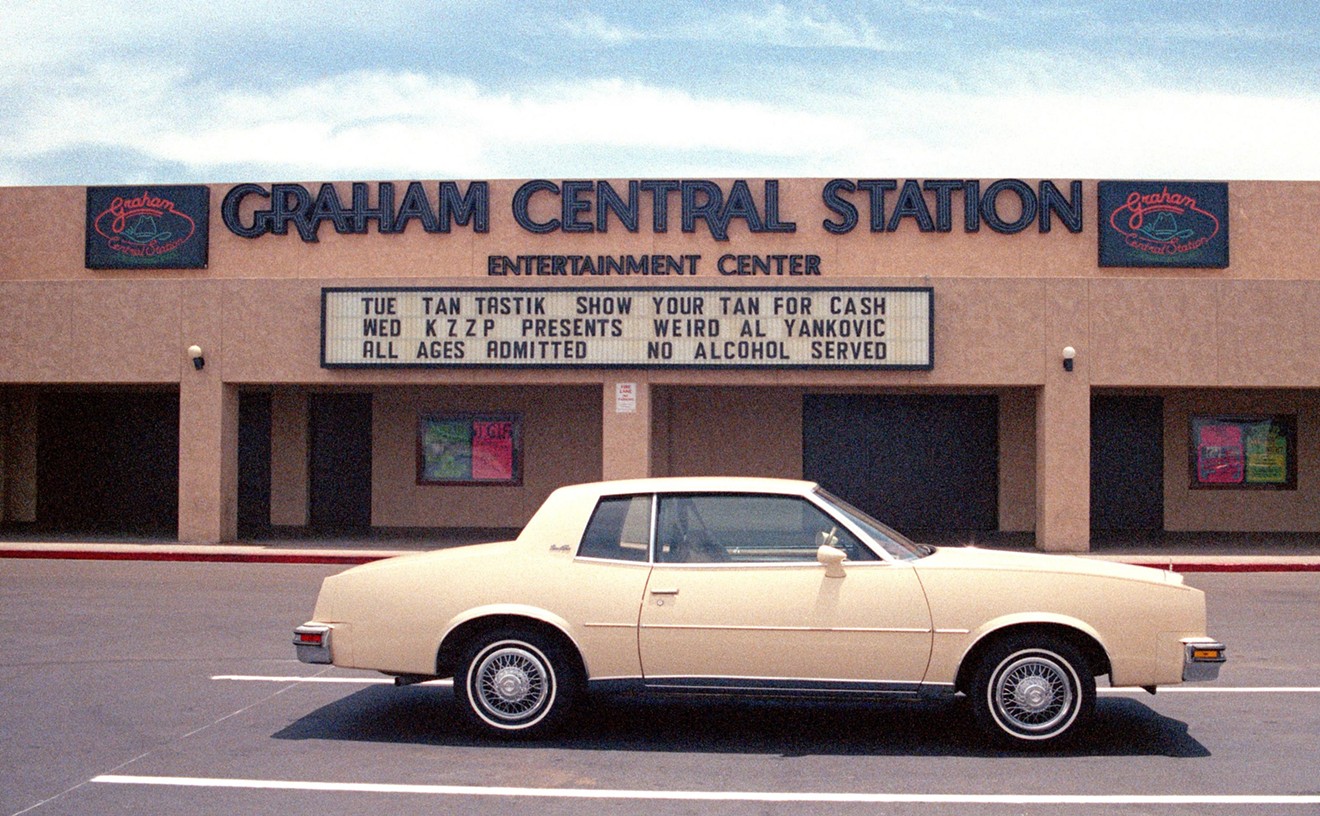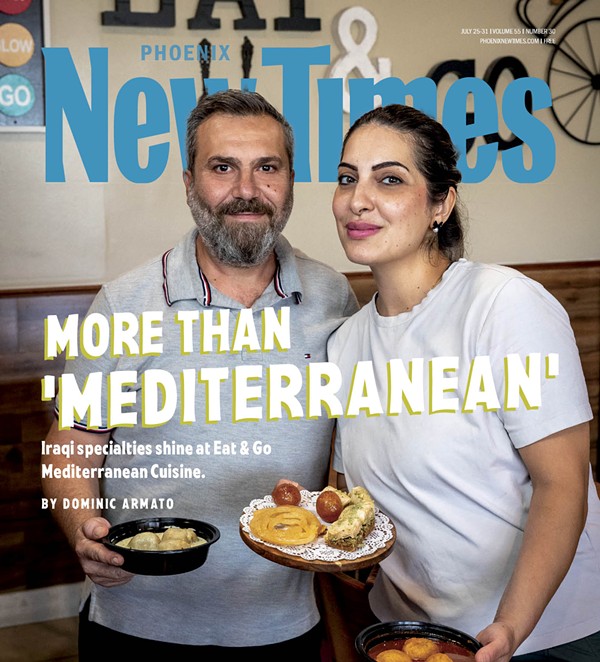Formed in 2012 as young teens, the band had a meteoric rise in 2017. They sold out venues
“Any period of time that a generation is fascinated with, even ours, is now looking back to the teachings of that music, listening to the purity of it and the truth of it,” guitarist Jake Kiszka explains. “It’s just as important now as it was then for a new generation to adapt those lessons. Writing songs for the times we’re living in now — it’s a fascinating reconstitution of what was going on then, and adapting it artistically for now.”
This mindset is shared by all the members, wise past their ages: twin brothers Josh (vocals) and Jake Kiszka (guitar), 22, younger brother Sam (bass/keys, 19), and longtime friend Danny Wagner (drums, 19). They all hail from the small Michigan town of Frankenmuth, famous for the world’s largest Christmas store. Instead of going to the movies on the weekends with friends, Kiszka’s parents brought them to
Jake learned guitar in what he calls a “challenging way” of teaching: As he grew out of his cheap plastic guitar as a child, his dad told him he had to learn to play Bob Seger’s “Night Moves” and Hendrix’s “Wild Thing” on the plastic instrument to earn a better guitar. This lesson led to better guitars and more challenging song requests, and the result is a style that is dynamic and precise with minimal live
Ahead of the band's new album Anthems of a Peaceful Army, releasing October 19 on Republic Records, Phoenix New Times spoke to Jake Kiszka on how music and society reflect each other, his fear about fame, and furthering his education outside of music.
This interview has been condensed and edited for content.
New Times: Give us a quick rundown of how your band was signed.
Kiszka: It was an interesting domino e
The music on Anthems of a Peaceful Army is more soaring and urgent than the vibe of Black Smoke Rising. What was the inspiration behind the meandering, rolling valleys of “Watching Over”?
It talks about another archetypal thing of higher power, the one who stands and watches over. Like, who is going to hear our cries when we destroy our earth? Take care of what we have and what we have left. It’s up for interpretation after that.
What about “Lover, Leaver (Taker, Believer)”?
That is a more complex ... maybe better suited for Josh, a story of methodology; a struggle or power.
How do you feel about the fact that you have had dozens of sold-out shows before even releasing a debut album?
On the right hand overwhelming, and on the left, very humbling. I would
Has there been anything that’s stricken fear in your heart about it and the success?
Not necessarily yet...but I suppose the persistence of it and the rigor of it and consistency. To stay healthy and take care of yourself has been a fear of mine, but having brothers and support around you ... there’s always someone to reel you back in and it’s a very focused thing. When you’re so busy, it’s difficult to have time to process or think of anything that may make us weak.
Which is probably all at once great and little dangerous, too.
That’s the beautiful thing about it.
What do you see as the main growth takeaway between last year’s EP and this debut, for you as a guitarist and the band?
I think the consistency of touring again and playing for the last year and a half together. Internally as musicians and as writers and artists, we’ve sort of grown. There’s this sense of evolution on the album. Maybe more conscious of ourselves, as sort of a natural process of growth. Personally, for me, anything I’ve picked up from anyone I’ve played with or learned along the last year and a half. Now there’s more dimension in my playing.
You said it as well, things were more spread out, and open, and free on this album. That element of technicality, as well in guitar playing. I think what we tried to do with the album
Can you pinpoint an example of something you learned from another guitarist or artist in the last year and
Some examples are of through licks and playing solos. I look at it very differently than songwriting or riff writing or creating parts with a guitar. Soloing is a completely different form and perspective and angle on playing guitar. So
The band’s interest in the ’60s and ’70s and the culture around it lies in the notion that it was the closest we as a country ever got to a Renaissance,
I think in any social climate, in past or present, music is still the direct and shining light, politically or sociologically, on what’s going on currently. Whether it’s wrong or right. But being very direct. What was so fascinating about a musical revolution ... is what happened during that time. People didn’t have outlets that they have today. Any period of time that a generation is fascinated with, even ours, is now looking back to the teachings of that music, listening to the purity of it and the truth of it. So much is important as it was then, now, for a new generation to adapt those lessons. Writing songs for the times we’re living in now — it’s a fascinating reconstitution of what was going on then and adapting it artistically now, not even musically.
Muddy Waters once said that his blues might sound simple, but they’re the hardest to play because of the nuances. What’s something about your guitar playing that people might not necessarily notice right off the bat?
It is very much like that. The guitar is very
Maybe a unique character of my
Growing up with well-educated and open-minded parents, surrounded by literature and music, you guys seem to value education. Are the plans to go to college or continue it in some way, separate from your music career?
That’s interesting. Because there’s obviously been a very dramatic evolution of the music and how important that has become. We kinda did skip over college, and Sam and Danny were touring before they even graduated high school. It’s certainly something that we’d consider and probably go back. Josh and I did one year of college before we had to sort of
As a young band, you’ve already experienced a lot, but no doubt have a set list of goals you want to achieve. What are three things on your bucket list?
I would say playing Madison Square Garden. That would be on the bucket list. That’s a right of passage, isn’t it? Traveling completely around the world, or to as many countries as we possibly can. And bringing out music to the masses to extend our message to as many as we possibly can.
So I guess your professional and personal goals line up pretty closely? That’s always good for an artist.
Yes - at least for the moment!
Greta Van Fleet. 8 p.m. Tuesday, September 25, and Wednesday, September 26, at Marquee Theatre, 730 North Mill Avenue, Tempe; 480-829-1300; luckymanonline.com. Tickets are $37.50 to $67.50 via Ticketweb.
Correction: an earlier version of this article misstated the title of one of the band's releases. It is Black Smoke Rising, not Blackberry Smoke Rising.












